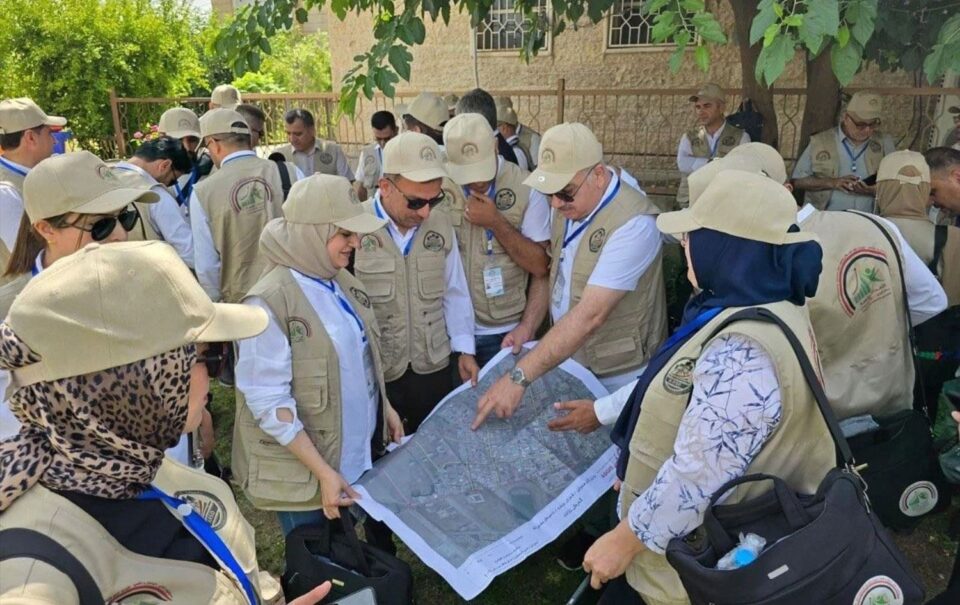The upcoming census raises alarms among Kurds, who fear that miscounting could undermine their demographic representation and historical claims to land.
Kurdish officials and legal experts are expressing concerns regarding the upcoming census in Iraq, particularly in areas outside the Kurdistan Regional Government (KRG). They fear that the census may not accurately reflect the true size of the Kurdish population, which could have significant implications for their political and social rights.
The census is a crucial step in implementing Article 140 of the Iraqi Constitution, which seeks to determine the future of Kirkuk and the Kurdish areas outside the KRG. The Iraqi Ministry of Planning has set November 20 for the general population census, including the Kurdistan Region. Hassan Majid, Head of the Kurdistan Democratic Party (KDP) faction in Kirkuk provincial council, told The Kurdish Globe that Kirkuk citizens currently residing in cities like Erbil and Sulaimani must obtain identity cards and other necessary documents. He urged them to prepare for the “siege and counting” process that is to follow.
Mohammed Kamal, the head of the third branch of the KDP in Kirkuk, has called for the postponement of the census until after Article 140 is fully implemented. He also urged Kurdish people living in Erbil and Sulaimani to return to Kirkuk to register themselves.
Kamal stated, “We cannot rush the census process in Kirkuk, as Article 140 has yet to be enacted.” He warned that if Kurdish people do not return to their homes, they risk losing all rights to food assistance as well as subsidized oil and other forms of aid. Therefore, he seriously asked the Kurds to return to their areas outside the KRG.
Additionally, lawyer Karzan Hanarayi outlined the legal and constitutional framework governing the census. He told The Kurdish Globe that displaced citizens have the opportunity to return, stay in their relatives’ houses, and register with them.
Regarding the demographic changes, he noted that until 1988, when Zartek village was destroyed, there was not a single Arab household. However, during the current census process, approximately 28 Arab households and eight Kurdish households have been registered. In contrast, more than 250 indigenous families from the village have been scattered throughout Kurdistan, and Arabs have been registered in their place. This situation poses a significant threat to the integrity of the general census.
Hanrayi called on citizens to return to Kirkuk and their hometowns before October 5 to register at the homes of relatives. He emphasized that participation in the census is crucial and that the “blockade and counting” process will continue until October 20, 2024. Those who do not register during this period will be ineligible to participate in the census.
Hemn Mohammed, a geopolitical expert, highlighted that attempts to change demographics in Kurdistan have been ongoing since the establishment of the Iraqi state, aimed at reducing the Kurdish population. “These attempts create geopolitical problems by diminishing the number of Kurds in historically Kurdish areas,” he said.
Hemn Mohammed states: “The attempts to alter demographics lead to significant geopolitical problems, particularly with the decreasing number of Kurds in historically Kurdish areas. In the censuses conducted in 1947, 1957, 1965, 1977, and 1987, the Kurdish population consistently declined, while the number of other ethnic groups, especially Arabs, increased. This demographic shift occurred in three phases: the first involved the expulsion of the Faili Kurds from their areas, the second focused on the Jazira region, and the third targeted Kirkuk and its surroundings.”
He emphasized that none of the three phases outlined in Article 140 have been implemented, lamenting that the Iraqi government has not conducted a census for 15 years for various reasons.
Mohammed further explained that while the 1957 census could serve as a baseline for this year’s census, national identifiers have been removed under the pretext of developing these areas. He suggested that this is driven by oil interests and the influx of non-Kurdish populations, aimed at reducing the Kurdish demographic.
“People are trying to return to these areas, but they find that their areas have not been rebuilt and there are no job opportunities, making their return unlikely,” he said. He reiterated the need for Article 140 to be implemented, arguing that all previous censuses have been detrimental to the Kurdish population.
The head of the Kurdistani areas board added that one of the significant threats is the influx of hundreds of thousands of Iraqi citizens from southern and central provinces into Kirkuk and other Kurdish areas outside the KRG. “We have requested that the 1957 census be used as the basis for the general census in Iraq,” he stated.
The Kurdish Globe

